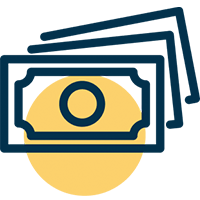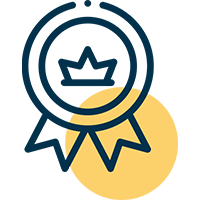
Wild Apples (annotated)
Henry David Thoreau
9781519310514
Buy More. Save More!
Quantity
Price
Discount
25 - 249
$5.69
5%
250+
$5.39
10%
Wild Apples is a classic American nature essayby the great American naturalist and philosopher, Henry David Thoreau. It is remarkable how closely the history of the Apple tree is connected with that of man. The geologist tells us that the order of the Rosaceae, which includes the Apple, also the true Grasses, and the Labiatae, or Mints, were introduced only a short time previous to the appearance of man on the globe.Henry David Thoreau (see name pronunciation; July 12, 1817 - May 6, 1862) was an American essayist, poet, philosopher, abolitionist, naturalist, tax resister, development critic, surveyor, yogi, [3] and historian. A leading transcendentalist, [4] Thoreau is best known for his book Walden, a reflection upon simple living in natural surroundings, and his essay "Civil Disobedience" (originally published as "Resistance to Civil Government"), an argument for disobedience to an unjust state.Thoreau's books, articles, essays, journals, and poetry amount to more than 20 volumes. Among his lasting contributions are his writings on natural history and philosophy, in which he anticipated the methods and findings of ecology and environmental history, two sources of modern-day environmentalism. His literary style interweaves close observation of nature, personal experience, pointed rhetoric, symbolic meanings, and historical lore, while displaying a poetic sensibility, philosophical austerity, and Yankee attention to practical detail.[5] He was also deeply interested in the idea of survival in the face of hostile elements, historical change, and natural decay; at the same time he advocated abandoning waste and illusion in order to discover life's true essential needs. He was a lifelong abolitionist, delivering lectures that attacked the Fugitive Slave Law while praising the writings of Wendell Phillips and defending the abolitionist John Brown. Thoreau's philosophy of civil disobedience later influenced the political thoughts and actions of such notable figures as Leo Tolstoy, Mahatma Gandhi, and Martin Luther King Jr. Thoreau is sometimes referred to as an anarchist.[7][8] Though "Civil Disobedience" seems to call for improving rather than abolishing government-"I ask for, not at once no government, but at once a better government"[9]-the direction of this improvement contrarily points toward anarchism: "'That government is best which governs not at all;' and when men are prepared for it, that will be the kind of government which they will have." Thoreau had a distinctive appearance, with a nose that he called his "most prominent feature".[15] Of his appearance and disposition, Ellery Channing wrote: [16]His face, once seen, could not be forgotten. The features were quite marked: the nose aquiline or very Roman, like one of the portraits of Caesar (more like a beak, as was said); large overhanging brows above the deepest set blue eyes that could be seen, in certain lights, and in others gray, -eyes expressive of all shades of feeling, but never weak or near-sighted; the forehead not unusually broad or high, full of concentrated energy and purpose; the mouth with prominent lips, pursed up with meaning and thought when silent, and giving out when open with the most varied and unusual instructive sayings.Henry David Thoreau was born David Henry Thoreau[17] in Concord, Massachusetts, into the "modest New England family"[18] of John Thoreau, a pencil maker, and Cynthia Dunbar. His paternal grandfather had been born on the UK crown dependency island of Jersey.[19] His maternal grandfather, Asa Dunbar, led Harvard's 1766 student "Butter Rebellion", [20] the first recorded student protest in the American colonies.[21] David Henry was named after his recently deceased paternal uncle, David Thoreau. He began to call himself Henry David after he finished college; he never petitioned to make a legal name change.
In contrast to Amazon and other book retailers,
who might also feature Wild Apples (annotated) within their extensive online inventories,
our focus at BulkBooks.com is on dealing with bulk orders while providing personalized service.
With our amazing team of friendly professionals, Price Matching, and our user-friendly Quote form,
we aim to simplify and expedite your bulk book purchasing process.
Should you wish to interact with a person while placing your bulk order for Wild Apples (annotated)?
We have a Bulk Book Specialist available to help, poised and prepared to assist you.
Chat us or
Contact us now!
ISBN:
9781519310514
Dimensions (WxH):
6.0 x 9.0
Publisher:
Amazon Digital Services LLC - KDP Print US
Publication Date:
November 15, 2015






